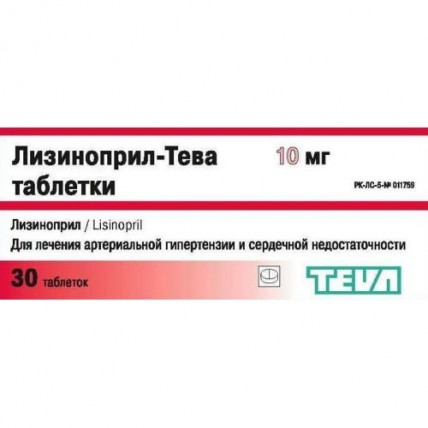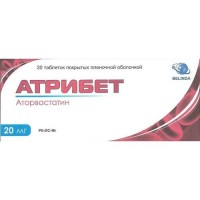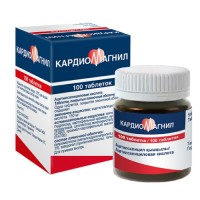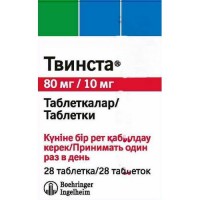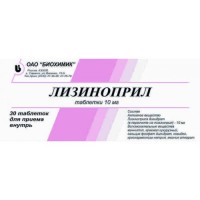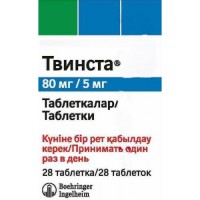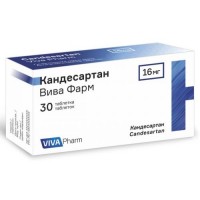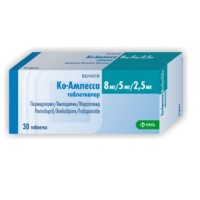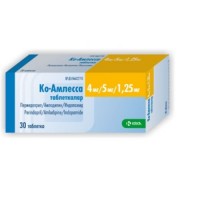Lisinopril-Teva 10 mg (30 tablets)
- $13.00
Lisinopril oral tablet is used to treat high blood pressure and heart failure in both adults and children 6 years of age and older. It’s also used to improve your chance of survival after a heart attack. Lisinopril belongs to a class of medications called ACE inhibitors. ACE is short for angiotensin converting enzyme. They open the blood vessels and make it easier for your heart to do its job. If your heart has been weakened, an ACE inhibitor will protect it and help it get stronger. Lisinopril is considered and antihypertensive drug. In general, antihypertensive drugs are used as a treatment for high blood pressure. This drug may be used as part of a combination therapy. That means you may need to take it with other drugs.
Common brand names: Prinivil, Zestril, Qbrelis, Zinopril, Diroton, Doneka, Lisinopril, Lisinopril Tablets USP, Nu-lisinopril, Mint-lisinopril, Mylan-lisinopril, Ratio-lisinopril Z, Riva-lisinopril, Teva-lisinopril, Sandoz Lisinopril
Composition (Tablets 10 mg)
One tablet contains the active substance - Lisinopril dihydrate 10.89 mg, equivalent to anhydrous lisinopril 10 mg
Excipients: mannitol, calcium hydrogen phosphate dihydrate, pregelatinized starch, dye PB-24823, croscarmellose sodium, magnesium stearate.
Arterial hypertension:
Treatment should start at 5 mg daily in the morning. The dose should be adjusted to provide optimal control of blood pressure levels. The time interval between dose increases should be at least 3 weeks. The usual maintenance dose is 10–20 mg lisinopril once a day, with a maximum daily dose of 40 mg once a day.
Heart failure:
Lisinopril-Teva is prescribed in addition to the existing therapy with diuretics and digitalis. The starting dose is 2.5 mg in the morning. The maintenance dose should be set in increments of 2.5 mg at intervals of 2-4 weeks. The usual maintenance dose is 5–20 mg once a day. Do not exceed the maximum dose of 35 mg lisinopril / day.
Acute myocardial infarction in patients with stable hemodynamics:
Treatment with Lisinopril-Teva can begin within 24 hours after the onset of symptoms, provided that hemodynamics are stable (systolic pressure is more than 100 mm Hg, without signs of renal dysfunction), in addition to standard heart attack therapy (thrombolytic drugs, acetylsalicylic acid, beta-blockers, nitrates). The initial dose is 5 mg, after 24 hours - another 5 mg, after 48 hours - 10 mg. Then the dose is 10 mg of lisinopril 1 time per day.
Patients with low systolic pressure (≤ 120 mm Hg) before starting therapy or during the first 3 days after a heart attack should receive a lower therapeutic dose for treatment - 2.5 mg of Lisinopril-Teva. If the systolic pressure is less than 90 mm Hg. Art. more than 1 hour, you should stop taking Lisinopril-Teva.
Treatment should continue for 6 weeks. The minimum maintenance dose is 5 mg per day. Patients with symptoms of heart failure should continue to be treated with Lisinopril-Teva. The drug can be given simultaneously with nitroglycerin (intravenously or as a skin patch).
In myocardial infarction, lisinopril should be given in addition to the usual standard therapy (thrombolytic agents, acetylsalicylic acid, beta-blockers), preferably together with nitrates.
Elderly patients:
In elderly patients, the dosage should be adjusted based on the creatinine level (to assess renal function), which is calculated using the Cockcroft formula:
Creatinine clearance = (140 - age) × body weight (kg)
0.814 × serum creatinine concentration (μmol / L)
(For women, the result obtained using this formula must be multiplied by 0.85).
Dosage in patients with moderately limited renal function (creatinine clearance 30 - 70 ml / min):
The initial dose is 2.5 mg of the drug in the morning, the maintenance dose is 5-10 mg per day. Do not exceed the maximum dose of 20 mg of lisinopril per day.
Lisinopril-Teva can be taken with or without food, but with sufficient fluid, once a day, preferably at the same time.
Sometimes
- headaches, dizziness, feeling of weakness, visual disturbances, fatigue
- dry cough, sore throat
- nausea, loss of appetite, diarrhea, constipation, vomiting
- allergic rash
Seldom
- stunned consciousness, depression, sleep disturbances, tinnitus, disturbances in the sense of balance, nervousness, changes in taste
- peripheral neuropathy with paresthesias, muscle cramps, hot flush, sweating
- shortness of breath, bronchospasm, allergic alveolitis
- tachycardia, cardiac arrhythmias, cardiogenic shock, chest pain, orthostatic hypotension
- cholestatic jaundice, proteinuria and increased serum bilirubin and liver enzymes
- anemia, thrombocytopenia, neutropenia, eosinophilia, in some cases agranulocytosis or pancytopenia; an increase in the concentration of urea, creatinine and potassium and a decrease in the concentration of sodium in the blood serum (in patients with impaired renal function)
- in some cases: hemolytic anemia in patients with a significant deficiency of glucose-3-phosphate dehydrogenase
- pruritus, urticaria, angioedema, pemphigus, erythema multiforme, exfoliative dermatitis, Stevens-Johnson syndrome, toxic epidermal necrosis, psoriasis, photosensitivity, alopecia, onycholysis
- Raynaud's syndrome
- impotence
Rarely
- arthralgia
- increased susceptibility to the active substance or other ACE inhibitors or one of the excipients
- renal artery stenosis (bilateral or unilateral with one kidney)
- a history of angioedema due to previous therapy with an ACE inhibitor and hereditary / spontaneous angioedema
- simultaneous use of lisinopril with products containing aliskiren in patients with diabetes mellitus or renal failure (GFR <60 ml / min / 1.73 m2)
- severe renal dysfunction (creatinine clearance <30 ml / min).
- hemodynamically relevant stenosis of the aorta or mitral valve or hypertrophic cardiomyopathy
- acute myocardial infarction in patients with unstable hemodynamics
- systolic pressure ≤ 100 mm Hg. Art. before treatment
- lactation
- pregnancy and lactation
- cardiogenic shock
- children up to age 18
- primary hyperaldosteronism
- condition after kidney transplantation
With the simultaneous use of Lisinopril-Teva tablets and:
- lithium excretion of lithium from the body can be reduced, therefore it is necessary to carefully monitor the concentration of lithium in the blood serum
- analgesics, non-steroidal anti-inflammatory drugs (for example, acetylsalicylic acid, indomethacin) - possibly weakening of the hypotensive effect of lisinopril
- baclofen - it is possible to increase the hypotensive effect of lisinopril; diuretics - it is possible to increase the hypotensive effect of lisinopril
- potassium-sparing diuretics (spironolactone, triamterene or amiloride) and potassium supplements increase the risk of hyperkalemia
- antihypertensive drugs - it is possible to enhance the hypotensive effect of lisinopril
- anesthetics, drugs, sleeping pills - a sharp drop in blood pressure is possible
- allopurinol, cytostatics, immunosuppressants, systemic corticosteroids, procainamide - the risk of leukopenia increases
- oral antidiabetic drugs (sulfonylurea derivatives, biguanides) and insulin - an increase in the hypotensive effect is possible, especially in the first weeks of combination therapy.
- amifostine - an increase in the hypotensive effect is possible
- antacids - reducing the bioavailability of lisinopril
- sympathomimetics - an increase in the hypotensive effect is possible
- alcohol - the effect of alcohol may increase
- table salt - weakening the hypotensive effect of lisinopril and the appearance of symptoms of heart failure.
Patients receiving multiple or high-dose diuretics (> 80 mg furosemide / day), patients with hypovolemia, hyponatremia (serum sodium <130 mmol / L), pre-existing hypotension, unstable heart failure, limited renal function, high-dose therapy with vasodilators and patients aged 70 years and older, it is recommended to start therapy with Lizinopril-Teva stationary.
Concomitant use of ACE inhibitors, angiotensin II receptor blockers or aliskiren increases the risk of hypotension, hyperkalemia, and decreased renal function (including acute renal failure). Therefore, a double blockade of the renin-angiotensin-aldosterone system due to the combined use of ACE inhibitors, angiotensin II receptor blockers or aliskiren is not recommended.
If dual block therapy is absolutely necessary, this should only be done under the supervision of a specialist and with close monitoring of kidney function, electrolytes, and blood pressure. ACE inhibitors and angiotensin II receptor blockers should not be used concomitantly in patients with diabetic nephropathy.
With the development of hypotension, it is necessary strict medical supervision, taking diuretics in low doses and carefully grinding the dose of the drug into powder, while monitoring renal function and potassium levels. If possible, diuretic therapy should be temporarily discontinued 2-3 days before starting lisinopril therapy. This should also be taken into account in patients with angina pectoris or other cardiovascular diseases, in whom myocardial infarction or stroke may develop due to an excessive drop in blood pressure.
With the development of hypotension, the patient should be placed on his back, if necessary, the volume of lost fluid is replaced. With bradycardia, atropine is prescribed.
Hemodialysis / LDL-Lipid-Apheresis / Desensitization Therapy
With the simultaneous use of lisinopril and dialysis with a polyacryl-nitrile membrane or LDL (low density lipoprotein) -apheresis using dextran sulfate or desensitization against insect venoms (bees, wasps), anaphylactic shock may develop.
It is recommended to use a different dialysis membrane or temporarily replace Lisinopril-Teva with other antihypertensive drugs (not ACE inhibitors).
Angioedema
With the development of angioedema of the face, lips, antihistamines are prescribed. Swelling of the tongue, glottis, and / or larynx can be life threatening, so emergency treatment is provided, with immediate subcutaneous injection of 0.3-0.5 mg epinephrine or slow intravenous injection of 0.1 mg epinephrine (follow dilution instructions), with ECG monitoring and blood pressure.
Features of the effect of the drug on the ability to drive a vehicle or potentially dangerous mechanisms
It is necessary to control the level of blood pressure, because due to individual characteristics, some patients may develop hypotension and, as a result, impair the ability to drive vehicles and service moving mechanisms.
Symptoms: severe hypotension, shock, bradycardia.
Treatment: The patient should be under strict medical supervision, preferably in an intensive care unit. Serum electrolyte and creatinine concentrations should be monitored frequently. Measures that prevent absorption, such as gastric lavage, the appointment of adsorbents and sodium sulfate, should be taken within 30 minutes after taking the drug. Lisinopril is removed by hemodialysis.
Store at a temperature not exceeding 25 ° C.
Keep out of the reach of children!
Shelf life - 4 years
Do not use after the expiration date.
Common brand names: Prinivil, Zestril, Qbrelis, Zinopril, Diroton, Doneka, Lisinopril, Lisinopril Tablets USP, Nu-lisinopril, Mint-lisinopril, Mylan-lisinopril, Ratio-lisinopril Z, Riva-lisinopril, Teva-lisinopril, Sandoz Lisinopril
Composition (Tablets 10 mg)
One tablet contains the active substance - Lisinopril dihydrate 10.89 mg, equivalent to anhydrous lisinopril 10 mg
Excipients: mannitol, calcium hydrogen phosphate dihydrate, pregelatinized starch, dye PB-24823, croscarmellose sodium, magnesium stearate.
Indications
- Arterial hypertension
- Chronic heart failure (as part of complex therapy with diuretics and cardiac glycosides)
- Acute myocardial infarction in patients with stable hemodynamics without signs of renal dysfunction.
Method of administration and dosage
Arterial hypertension:
Treatment should start at 5 mg daily in the morning. The dose should be adjusted to provide optimal control of blood pressure levels. The time interval between dose increases should be at least 3 weeks. The usual maintenance dose is 10–20 mg lisinopril once a day, with a maximum daily dose of 40 mg once a day.
Heart failure:
Lisinopril-Teva is prescribed in addition to the existing therapy with diuretics and digitalis. The starting dose is 2.5 mg in the morning. The maintenance dose should be set in increments of 2.5 mg at intervals of 2-4 weeks. The usual maintenance dose is 5–20 mg once a day. Do not exceed the maximum dose of 35 mg lisinopril / day.
Acute myocardial infarction in patients with stable hemodynamics:
Treatment with Lisinopril-Teva can begin within 24 hours after the onset of symptoms, provided that hemodynamics are stable (systolic pressure is more than 100 mm Hg, without signs of renal dysfunction), in addition to standard heart attack therapy (thrombolytic drugs, acetylsalicylic acid, beta-blockers, nitrates). The initial dose is 5 mg, after 24 hours - another 5 mg, after 48 hours - 10 mg. Then the dose is 10 mg of lisinopril 1 time per day.
Patients with low systolic pressure (≤ 120 mm Hg) before starting therapy or during the first 3 days after a heart attack should receive a lower therapeutic dose for treatment - 2.5 mg of Lisinopril-Teva. If the systolic pressure is less than 90 mm Hg. Art. more than 1 hour, you should stop taking Lisinopril-Teva.
Treatment should continue for 6 weeks. The minimum maintenance dose is 5 mg per day. Patients with symptoms of heart failure should continue to be treated with Lisinopril-Teva. The drug can be given simultaneously with nitroglycerin (intravenously or as a skin patch).
In myocardial infarction, lisinopril should be given in addition to the usual standard therapy (thrombolytic agents, acetylsalicylic acid, beta-blockers), preferably together with nitrates.
Elderly patients:
In elderly patients, the dosage should be adjusted based on the creatinine level (to assess renal function), which is calculated using the Cockcroft formula:
Creatinine clearance = (140 - age) × body weight (kg)
0.814 × serum creatinine concentration (μmol / L)
(For women, the result obtained using this formula must be multiplied by 0.85).
Dosage in patients with moderately limited renal function (creatinine clearance 30 - 70 ml / min):
The initial dose is 2.5 mg of the drug in the morning, the maintenance dose is 5-10 mg per day. Do not exceed the maximum dose of 20 mg of lisinopril per day.
Lisinopril-Teva can be taken with or without food, but with sufficient fluid, once a day, preferably at the same time.
Side effects
Sometimes
- headaches, dizziness, feeling of weakness, visual disturbances, fatigue
- dry cough, sore throat
- nausea, loss of appetite, diarrhea, constipation, vomiting
- allergic rash
Seldom
- stunned consciousness, depression, sleep disturbances, tinnitus, disturbances in the sense of balance, nervousness, changes in taste
- peripheral neuropathy with paresthesias, muscle cramps, hot flush, sweating
- shortness of breath, bronchospasm, allergic alveolitis
- tachycardia, cardiac arrhythmias, cardiogenic shock, chest pain, orthostatic hypotension
- cholestatic jaundice, proteinuria and increased serum bilirubin and liver enzymes
- anemia, thrombocytopenia, neutropenia, eosinophilia, in some cases agranulocytosis or pancytopenia; an increase in the concentration of urea, creatinine and potassium and a decrease in the concentration of sodium in the blood serum (in patients with impaired renal function)
- in some cases: hemolytic anemia in patients with a significant deficiency of glucose-3-phosphate dehydrogenase
- pruritus, urticaria, angioedema, pemphigus, erythema multiforme, exfoliative dermatitis, Stevens-Johnson syndrome, toxic epidermal necrosis, psoriasis, photosensitivity, alopecia, onycholysis
- Raynaud's syndrome
- impotence
Rarely
- arthralgia
Contraindications
- increased susceptibility to the active substance or other ACE inhibitors or one of the excipients
- renal artery stenosis (bilateral or unilateral with one kidney)
- a history of angioedema due to previous therapy with an ACE inhibitor and hereditary / spontaneous angioedema
- simultaneous use of lisinopril with products containing aliskiren in patients with diabetes mellitus or renal failure (GFR <60 ml / min / 1.73 m2)
- severe renal dysfunction (creatinine clearance <30 ml / min).
- hemodynamically relevant stenosis of the aorta or mitral valve or hypertrophic cardiomyopathy
- acute myocardial infarction in patients with unstable hemodynamics
- systolic pressure ≤ 100 mm Hg. Art. before treatment
- lactation
- pregnancy and lactation
- cardiogenic shock
- children up to age 18
- primary hyperaldosteronism
- condition after kidney transplantation
Drug interactions
With the simultaneous use of Lisinopril-Teva tablets and:
- lithium excretion of lithium from the body can be reduced, therefore it is necessary to carefully monitor the concentration of lithium in the blood serum
- analgesics, non-steroidal anti-inflammatory drugs (for example, acetylsalicylic acid, indomethacin) - possibly weakening of the hypotensive effect of lisinopril
- baclofen - it is possible to increase the hypotensive effect of lisinopril; diuretics - it is possible to increase the hypotensive effect of lisinopril
- potassium-sparing diuretics (spironolactone, triamterene or amiloride) and potassium supplements increase the risk of hyperkalemia
- antihypertensive drugs - it is possible to enhance the hypotensive effect of lisinopril
- anesthetics, drugs, sleeping pills - a sharp drop in blood pressure is possible
- allopurinol, cytostatics, immunosuppressants, systemic corticosteroids, procainamide - the risk of leukopenia increases
- oral antidiabetic drugs (sulfonylurea derivatives, biguanides) and insulin - an increase in the hypotensive effect is possible, especially in the first weeks of combination therapy.
- amifostine - an increase in the hypotensive effect is possible
- antacids - reducing the bioavailability of lisinopril
- sympathomimetics - an increase in the hypotensive effect is possible
- alcohol - the effect of alcohol may increase
- table salt - weakening the hypotensive effect of lisinopril and the appearance of symptoms of heart failure.
Special instructions
Patients receiving multiple or high-dose diuretics (> 80 mg furosemide / day), patients with hypovolemia, hyponatremia (serum sodium <130 mmol / L), pre-existing hypotension, unstable heart failure, limited renal function, high-dose therapy with vasodilators and patients aged 70 years and older, it is recommended to start therapy with Lizinopril-Teva stationary.
Concomitant use of ACE inhibitors, angiotensin II receptor blockers or aliskiren increases the risk of hypotension, hyperkalemia, and decreased renal function (including acute renal failure). Therefore, a double blockade of the renin-angiotensin-aldosterone system due to the combined use of ACE inhibitors, angiotensin II receptor blockers or aliskiren is not recommended.
If dual block therapy is absolutely necessary, this should only be done under the supervision of a specialist and with close monitoring of kidney function, electrolytes, and blood pressure. ACE inhibitors and angiotensin II receptor blockers should not be used concomitantly in patients with diabetic nephropathy.
With the development of hypotension, it is necessary strict medical supervision, taking diuretics in low doses and carefully grinding the dose of the drug into powder, while monitoring renal function and potassium levels. If possible, diuretic therapy should be temporarily discontinued 2-3 days before starting lisinopril therapy. This should also be taken into account in patients with angina pectoris or other cardiovascular diseases, in whom myocardial infarction or stroke may develop due to an excessive drop in blood pressure.
With the development of hypotension, the patient should be placed on his back, if necessary, the volume of lost fluid is replaced. With bradycardia, atropine is prescribed.
Hemodialysis / LDL-Lipid-Apheresis / Desensitization Therapy
With the simultaneous use of lisinopril and dialysis with a polyacryl-nitrile membrane or LDL (low density lipoprotein) -apheresis using dextran sulfate or desensitization against insect venoms (bees, wasps), anaphylactic shock may develop.
It is recommended to use a different dialysis membrane or temporarily replace Lisinopril-Teva with other antihypertensive drugs (not ACE inhibitors).
Angioedema
With the development of angioedema of the face, lips, antihistamines are prescribed. Swelling of the tongue, glottis, and / or larynx can be life threatening, so emergency treatment is provided, with immediate subcutaneous injection of 0.3-0.5 mg epinephrine or slow intravenous injection of 0.1 mg epinephrine (follow dilution instructions), with ECG monitoring and blood pressure.
Features of the effect of the drug on the ability to drive a vehicle or potentially dangerous mechanisms
It is necessary to control the level of blood pressure, because due to individual characteristics, some patients may develop hypotension and, as a result, impair the ability to drive vehicles and service moving mechanisms.
Overdose
Symptoms: severe hypotension, shock, bradycardia.
Treatment: The patient should be under strict medical supervision, preferably in an intensive care unit. Serum electrolyte and creatinine concentrations should be monitored frequently. Measures that prevent absorption, such as gastric lavage, the appointment of adsorbents and sodium sulfate, should be taken within 30 minutes after taking the drug. Lisinopril is removed by hemodialysis.
How to store Lisinopril-Teva?
Store at a temperature not exceeding 25 ° C.
Keep out of the reach of children!
Shelf life - 4 years
Do not use after the expiration date.
